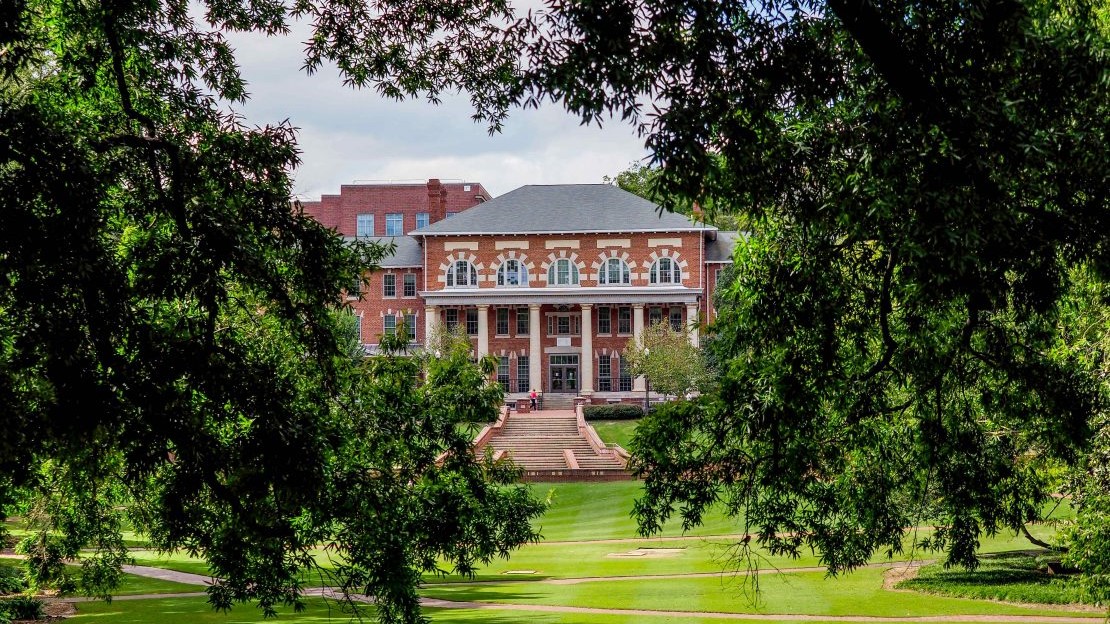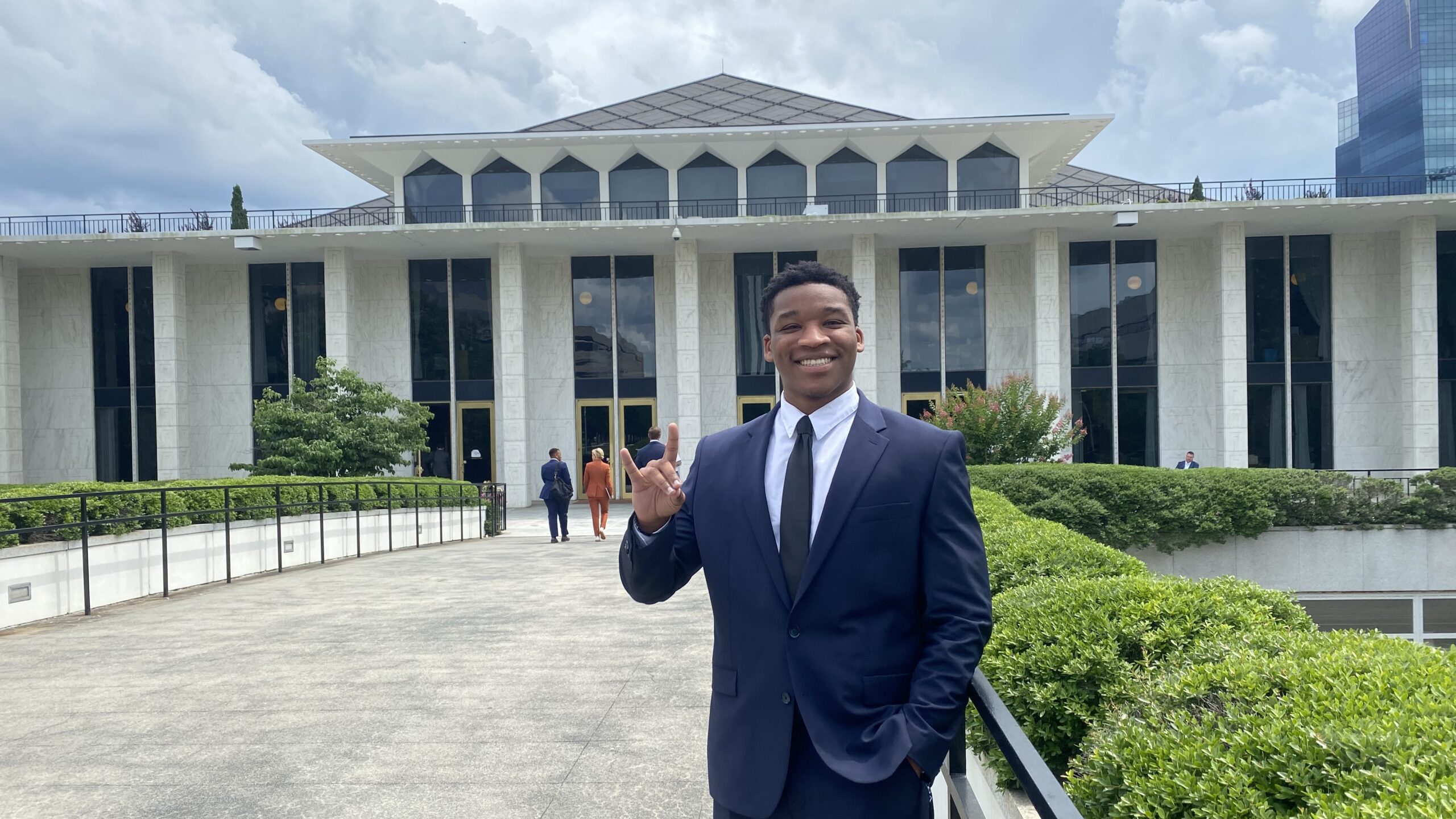Meet the Faculty: Michael Struett

 Michael Struett is an associate professor of political science and chair of the Department of Political Science. His research and teaching interests focus on the evolution of norms in world politics, and the role of international organizations and international law in contributing to world order. Much of his work focuses on the impact of non-governmental organizations in world politics, particularly the importance of their participation in processes of global governance.
Michael Struett is an associate professor of political science and chair of the Department of Political Science. His research and teaching interests focus on the evolution of norms in world politics, and the role of international organizations and international law in contributing to world order. Much of his work focuses on the impact of non-governmental organizations in world politics, particularly the importance of their participation in processes of global governance.
How long have you been at NC State and which classes do you usually teach?
I started at NC State in the fall of 2005. At the undergraduate level, I teach international relations, international law, and the United Nations and global order. I also teach graduate level seminar courses on international law and global governance.
In what area do you focus your research?
I am interested in the ways that social norms, including the formal rules of international law, shape the way that states and other actors behave in the international system. I have a particular interest in human rights norms. So I have done some research on the ways that international human rights norms are followed or ignored by the United States. I am also interested in the ways that political actors make arguments about the policy outcomes they want with references to international law.
Why does the study of political science matter?
To me, it is inherently interesting to try to figure out why people do the things they do, both as individuals, and as parts of larger groups like local communities, states, and nations. Many people are cynical about politics, and think bad or greedy people make political decisions that lead to negative outcomes. But it is actually really difficult for people to figure out what goals to pursue as a larger society, what things to value, and even how to understand what their fellow human beings need from living in society. Whether it is a decision about what a family should have for dinner, or what mix of carbon based or renewable fuels a nation state should use, politics is everywhere people have to make choices together. Political science is about watching and observing how those processes actually work, and where we can, making suggestions about how those processes might work a little better.
What led you to a career as a professor of political science?
I was very interested in diplomacy and international organizations as a high schooler. That led me to history and political science classes as an undergraduate. After earning my political science undergrad degree, I thought I’d get a M.A. degree in international affairs in part to increase my chances of entering the foreign service to become an Ambassador and maybe Secretary of State someday. But then I realized that job involves representing the government of the United States of America. I think the United States is great, but I didn’t think I would always want to reflect the views of the current president of the United States. Of course, lawyers do this all the time, you represent your client, right or wrong. By the end of my master’s program, I was choosing between an academic career and Ph.D. programs or working for the U.S. Department of State, and I decided I wanted to choose my own research topics and decide what I wanted to say on my own account. So I needed to be an academic.
What is your favorite thing about NC State?
The triangle area is great. It turned out to be a great place to raise kids. And that was a surprise for me because I had some prejudicial views about the American South having grown up in California. I love that NC State has a land grant mission, and that it is accessible to North Carolinians from a wide variety of backgrounds. Also, NC State is firmly rooted in the information economy, but still has a hometown community vibe.
What has surprised you most about your students this year?
Their resilience in the face of a global pandemic and the threat of climate catastrophe. It hasn’t been easy for anyone. But now we have a generation that knows quite a bit about resilience. I am hopeful the big human collectives will figure out how to limit the amount of greenhouse gases in the atmosphere, and to manage the rest of the problems on the global agenda so we can make the 21st century one where human’s thrive across the planet, regardless of their nationality or other background characteristics. Young people today are going to be the key to bringing that vision into reality.
What is one thing your students would be surprised to know about you?
I speak Spanish, maybe not like a native speaker, but I am pretty fluent.
If you could time travel, what advice would you give your college-age self?
Amazon. It’s true they won’t sell 50 books to every American, but if you are valuing their 1995 stock price on that basis you are missing the big picture.
What is the next thing you hope to accomplish on your wish list?
I have some things I would like to say about the United State’s relationship with international law. It’s a book I need to write.
Favorite place on campus for a selfie?
The Court of Carolinas, but any angle works.
Howling Cow flavor you would stand in line for?
Cookie Dough
The Krispy Kreme Challenge – do you eat and run or carry your donuts?
Eat one. Don’t get sick. You’ll have the “experience” of running the Krispy Kreme. Now, if you are really competitive, and you want to get an official time, do it again a second time and eat all twelve. But by then, you will know what you signed up for.
- Categories:


